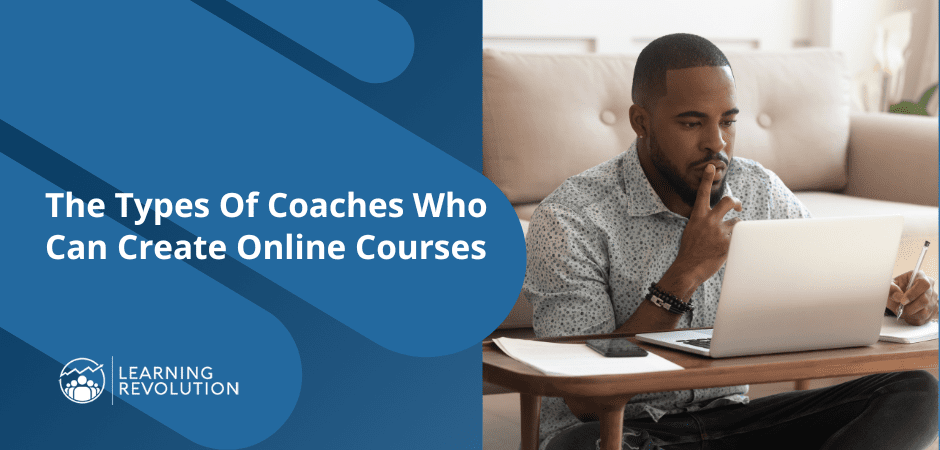
Coaching has become a powerful tool for individuals to get the guidance, support, and motivation they need to identify and achieve their goals. The demand for coaching services continues to grow, creating opportunities for those considering launching their own coaching business.
However, starting a coaching business can be a daunting endeavor, requiring careful planning, strategic thinking, and a solid understanding of the industry landscape.
This step-by-step guide is designed to provide aspiring coaches with a comprehensive roadmap to navigate the exciting yet challenging journey of starting a coaching business. Whether you’re a seasoned professional looking to transition into coaching or someone with a passion for helping others embark on their growth journey, this guide will equip you with the knowledge, tools, and resources you need to turn your dream of running a thriving online coaching business into a reality.
How To Start A Coaching Business: A Step-By-Step Process
Starting a coaching business is not just about pursuing a career—it’s about making a meaningful difference in the lives of others, empowering them to overcome obstacles, achieve their goals, and live fulfilling lives. By following the steps outlined in this guide and staying committed to your vision, you’ll be well on your way to creating a thriving coaching business that not only transforms the lives of your clients but also brings you immense joy, fulfillment, and success.
Please note, that if you’re an experienced coach who has an established in-person business but wants to take your coaching services online, you will have already accomplished the first steps in this guide. If you’re seeking information on how to take your current business online, skip ahead to step 7.
Step 1: Identify Your Niche
Finding your niche is crucial for the success of your coaching business. It’s about defining your unique offering and target audience to position yourself effectively in the market. It can also help you identify various certifications that you may want to acquire or professional organizations that you want to join.
The following are examples of different coaching niches:
- Life Coaching: This is an extensive niche. Life coaches help clients with various aspects of their lives, such as setting and achieving goals, improving relationships, managing stress, and finding greater purpose.
- Career Coaching: Career coaches help individuals navigate their careers, from choosing a career path to getting promoted, switching careers, or starting a business.
- Relationship Coaching: Relationships coaches work with individuals and couples helping them to learn better communication skills, improve conflict resolution skills, and build stronger, healthier relationships.
- Heath and Wellness Coaching: Coaches in this niche support individuals in adopting healthy habits and achieving their health and wellness goals, such as weight loss, stress management, or disease management.
- Executive Coaching: Provides high-level coaching and support to executives and CEOs on a variety of business and personal development challenges.
This is not an exhaustive list of all of the different niches that exist in the world of coaching.
Identifying your coaching niche isn’t always an easy task. If you’re struggling to identify the niche that suits your experience and skills best, consider doing the following:
- Conduct A Self-Assessment
- Interests and Passions: What are you naturally drawn to? What topics do you enjoy learning and talking about? Identifying areas where your passion lies will fuel your enthusiasm and make the coaching process more fulfilling for you.
- Skills and Expertise: What are you good at? What experiences and knowledge can you share with others? Consider your past work experience, certifications, and personal achievements.
- Values and Beliefs: What are the core values that guide you? Choosing a niche that aligns with your values will allow you to coach with authenticity and purpose.
- Research the Market
- Demand: Research the market to see if there is a demand for your potential niche. Look for online communities, forums, and social media groups where people discuss challenges related to your chosen area. You can also use market research tools to gauge the size and growth potential of your niche.
- Competition: While having no competition can be tempting, some competition indicates a healthy market with existing demand. Analyze your competitors’ offerings, pricing, and marketing strategies to identify potential gaps in the market where you can differentiate yourself.
- Profitability: Consider the potential profitability of your niche. Research average coaching rates in your niche and estimate the number of clients you need to reach your income goals.
Over time you may find that your niche will shift as you learn more about yourself as a coach. That’s OK! However, having an initial niche will help you to set yourself up for success and growth.
Step 2: Consider Getting a Coaching Certification
If you don’t already have a coaching certification, it’s worth exploring the available options.
Coaching is one of the fastest-growing industries in the world. Despite this, it is not currently regulated on a global level. This means that coaches do not have to obtain any sort of training or certification before offering their services to clients.
However, there are benefits to getting a coaching certification.
- Credibility and Trust: Clients who perform their due diligence will want to see that their coach has undergone formal training.
- Skill Development: Certification programs provide comprehensive training in coaching methodologies, communication techniques, and ethical guidelines.
- Access to Resources and Community: Through coaching certification programs, individuals can gain access to networking events, peer support, and even mentorship.
Certification can be a worthwhile enhancement that opens doors to new opportunities.
Due to the lack of regulation in the coaching industry, finding the right certification can be a confusing and overwhelming process. The list below includes some of the longest-established and well-known coaching organizations that offer accreditation.
- International Coaching Federation (ICF)
- Association for Coaching (AC)
- European Mentoring and Coaching Council (EMCC)
- European Coaching Association (ECA)
Although these are popular organizations, they are by no means the only options available. When researching various certifications, learn more about the organization, its founders, and any accreditation that the organization may have received. For example, a CPD Accreditation shows that the organization has gone through the process of verifying the educational authority of training, online education, and coaching providers.
Step 3: Set Up Your Business Accounts
Setting up the legal and financial parts of a business may seem like a daunting task. Still, it’s crucial to lay a strong foundation that can withstand the challenges and complexities of entrepreneurship. Proper setup builds trust and credibility with customers, partners, and investors. Additionally, a well-structured business allows for better organization and efficiency – saving you time and money in the long run.
The following is a list of essential steps you should take to create a strong business foundation.
- Choose a Company Name: Create a list of company name possibilities and then research availability. Check to see if you can purchase the matching domain name and research if the name is already taken in trademark registries and LLC registries.
- Form a Legal Entity: Once you’ve chosen a company name, be sure to form a legal entity. A legal expert can help you determine what type of business you want to form, such as a sole proprietorship, LLC, or corporation.
- Set Up Business Accounts: Business bank accounts, email accounts, phone numbers, accounting software, website hosting, online course platforms, and merchant accounts are a few that you may need to obtain.
As you go through these steps, consult with legal and financial experts as needed to ensure accounts are properly set up.
Step 4: Create A Business Plan
Crafting a comprehensive business plan is crucial for guiding the strategic direction and operations of your coaching business. Here’s an outline of the steps you should take to develop your business plan:
- Define Your Mission and Vision
- Conduct Market Research
- Outline Operations and Management Structure
- Develop Marketing and Sales Strategies
- Create a Budget
- Create a Content Strategy
For an in-depth guide on how to develop a business plan, download our free guide.
Step 5: Build Your Coaching Packages
Not all coaches create coaching packages – many are successful in charging a simple hourly rate. But there are benefits to offering packages. Creating coaching packages involves structuring your services into comprehensive offerings that address your client’s needs while providing clear value and benefits. Packages make the services you offer easier to understand and market.
Here’s how to build a coaching package:
- Define your coaching services.
- Determine package types, such as individual packages or monthly packages.
- Outline each package’s components.
- Set a pricing structure.
- Write package descriptions.
Your coaching package should highlight the unique value that you can offer to new and returning clients. You should regularly review and evaluate your coaching packages to ensure they remain relevant, effective, and competitive.
Step 6: Develop Your Brand
Now that you have your company name, business plan, and coaching packages, you can develop our brand. Your brand identity will convey the values, vision, and personality of your coaching business and you as a coach.
Brand Voice
A brand voice establishes the tone and language that align with your personality and values. Consider whether your brand voice is authoritative, empathetic, inspirational, or conversational, depending on your audience and positioning. Keeping this voice consistent across all platforms helps to establish trust.
Brand Elements
A memorable logo is worth a thousand words. Consider colors, fonts, and symbols that evoke the emotions and values you want to convey. It’s a good idea to work closely with a graphic designer who can help bring your logo vision to life.
Once a logo has been created, the colors and logo can be used to build additional graphics for social media accounts, email signatures, downloadable templates, online coaching courses, brochures, coaching packages, business cards, and more.
This is another way to maintain consistency and reinforce your brand across all platforms.
Step 7: Choose a Coaching Platform, Build and Launch Your Website
It should come as no surprise that every online coach should have a website! There are many ways to create a website – you can hire a web developer or build your own. Many online coaching platforms include a website builder, making it easy to quickly design and launch your coaching site.
A few of the coaching platforms that include a website are:
Streamline your coaching business with a platform that equips you with everything you need: website creation tools, secure sales channels for your coaching packages, and built-in communication features to manage and connect with clients, seamlessly. For more in-depth reviews, check out the coaching platforms our Life Coach Team recommends.
Step 8: Market Your Coaching Business
Effective marketing is crucial for attracting and retaining clients.
Marketing strategies you’ll want to consider:
- Online Marketing: SEO, social media, email campaigns.
- Content Marketing: Blogging, podcasts, webinars.
- Networking: Attend industry events and build relationships.
- Paid Advertising: Use Google Ads, Facebook Ads, and other platforms.
Marketing isn’t a “one-and-done” effort; it requires continuous engagement, analysis, and adaptation. By consistently applying these strategies and remaining flexible to adjust your tactics based on performance data and market changes, you can build a strong and sustainable client base.
Congratulations! You’ve Started an Exciting Journey as a Coach
Starting a coaching business is a rewarding journey that allows you to make a significant impact on the lives of others while pursuing a fulfilling career. By following this step-by-step guide, you can lay a solid foundation for your business, from identifying your niche and obtaining necessary certifications to setting up your business structure and developing effective marketing strategies. Remember, success in coaching comes from a combination of passion, continuous learning, and strategic planning. Stay committed to your vision, be open to change, and strive for excellence in your services. As you embark on this exciting path, you’ll not only transform the lives of your clients but also achieve personal and professional fulfillment. Ready to get started? Begin with the first step today, and watch your coaching business thrive.
Frequently Asked Questions About Starting an Online Coaching Business
What are the benefits of starting an online coaching business compared to a traditional in-person coaching practice?
Online coaching offers several advantages over a traditional in-person practice:
- Easier Start-up: Launching an online business is faster and requires fewer resources. You won’t need to find and rent office space, and many online tools can streamline operations.
- Flexibility and Accessibility: You and your clients can connect from anywhere with an internet connection. This allows you to set your own schedule and work remotely, and clients can avoid commutes and find times that fit their busy lives.
- Wider Reach: The internet eliminates geographical barriers. You can connect with a global audience, attracting clients from anywhere in the world.
- Cost-Effectiveness: Lower overhead costs associated with online coaching can translate to more affordable rates for clients and potentially higher profit margins for you.
- Convenience: Both you and your clients can benefit from the ease of online scheduling and communication.
- Potential for Scalability: An online coaching business model can be more easily scaled than a traditional practice. You can reach more clients without needing to significantly increase your workload.
- Automation: Many aspects of your business, like appointment scheduling and content delivery, can be automated, saving you time and effort.
In short, online coaching offers a more flexible, accessible, and potentially lucrative way to build a coaching practice.
How can I ensure the security and privacy of my client’s information when coaching online?
Here are some key steps you can take to ensure the security and privacy of your client’s information when coaching online:
Clearly Defined Policies:
1. Contract: Have a written coaching agreement that outlines your confidentiality policies and how client information will be handled.
2. Privacy Policy: Create a separate privacy policy that details what information you collect, how it’s used, and how it’s protected.
Secure Communication Channels:
1. Video Conferencing: Use secure video conferencing platforms with built-in encryption features for sensitive information.
2. Email: Avoid using regular email for sensitive communication. Consider encrypted email services or a secure client portal.
Data Storage:
1. Encryption: Store all client data electronically on encrypted drives and cloud storage solutions.
Password Protection: Use strong passwords and enforce multi-factor authentication for access to client information.
2. Limited Access: Only grant access to client information to those who absolutely need it for coaching purposes.
Physical Security:
1. Document Storage: Securely store any physical copies of client notes or documents under lock and key.
2. Device Security: Password protect your devices and implement automatic data encryption features.
When researching online coaching platforms, be sure to contact their team to learn more about the security provided by the platform and what action will be taken in the event of a security breach.
{ “@context”: “https://schema.org”, “@type”: “FAQPage”, “mainEntity”: [{ “@type”: “Question”, “name”: “What are the benefits of starting an online coaching business compared to a traditional in-person coaching practice?”, “acceptedAnswer”: { “@type”: “Answer”, “text”: “nline coaching offers several advantages over a traditional in-person practice: Easier Start-up: Launching an online business is faster and requires fewer resources. You won’t need to find and rent office space, and many online tools can streamline operations. Flexibility and Accessibility: You and your clients can connect from anywhere with an internet connection. This allows you to set your own schedule and work remotely, and clients can avoid commutes and find times that fit their busy lives. Wider Reach: The internet eliminates geographical barriers. You can connect with a global audience, attracting clients from anywhere in the world. Cost-Effectiveness: Lower overhead costs associated with online coaching can translate to more affordable rates for clients and potentially higher profit margins for you. Convenience: Both you and your clients can benefit from the ease of online scheduling and communication. Potential for Scalability: An online coaching business model can be more easily scaled than a traditional practice. You can reach more clients without needing to significantly increase your workload. Automation: Many aspects of your business, like appointment scheduling and content delivery, can be automated, saving you time and effort. In short, online coaching offers a more flexible, accessible, and potentially lucrative way to build a coaching practice.” } },{ “@type”: “Question”, “name”: “How can I ensure the security and privacy of my clients’ information when coaching online?”, “acceptedAnswer”: { “@type”: “Answer”, “text”: “Here are some key steps you can take to ensure the security and privacy of your client’s information when coaching online: Clearly Defined Policies: Contract: Have a written coaching agreement that outlines your confidentiality policies and how client information will be handled. Privacy Policy: Create a separate privacy policy that details what information you collect, how it’s used, and how it’s protected. Secure Communication Channels: Video Conferencing: Use secure video conferencing platforms with built-in encryption features like HIPAA compliant platforms for sensitive information. Email: Avoid using regular email for sensitive communication. Consider encrypted email services or a secure client portal. Data Storage: Encryption: Store all client data electronically on encrypted drives and cloud storage solutions. Password Protection: Use strong passwords and enforce multi-factor authentication for access to client information. Limited Access: Only grant access to client information to those who absolutely need it for coaching purposes. Physical Security: Document Storage: Securely store any physical copies of client notes or documents under lock and key. Device Security: Password protect your devices and implement automatic data encryption features. When researching online coaching platforms, be sure to contact their team to learn more about the security provided by the platform and what action will be taken in the event of a security breach.” } }] }Table of Contents



